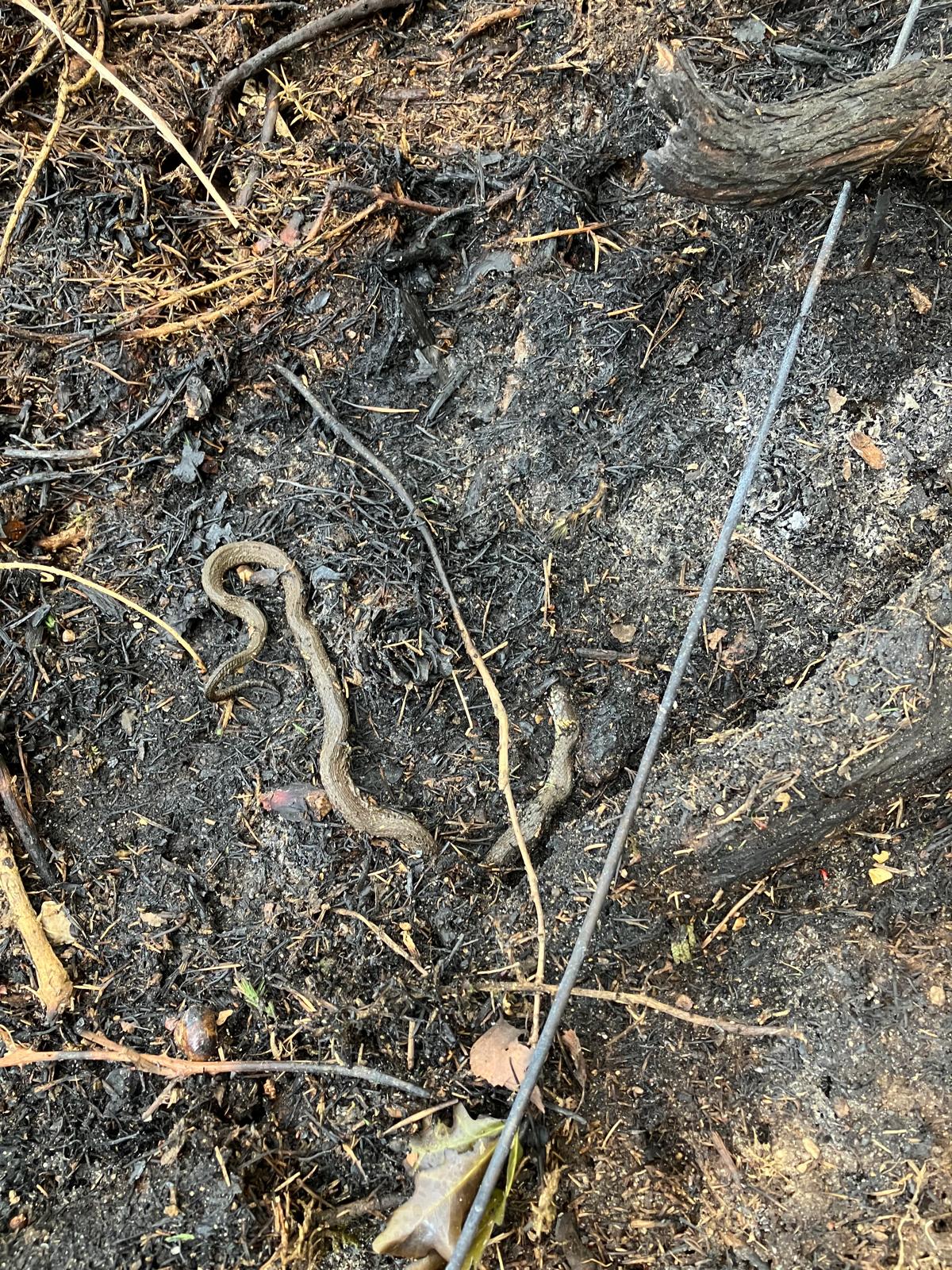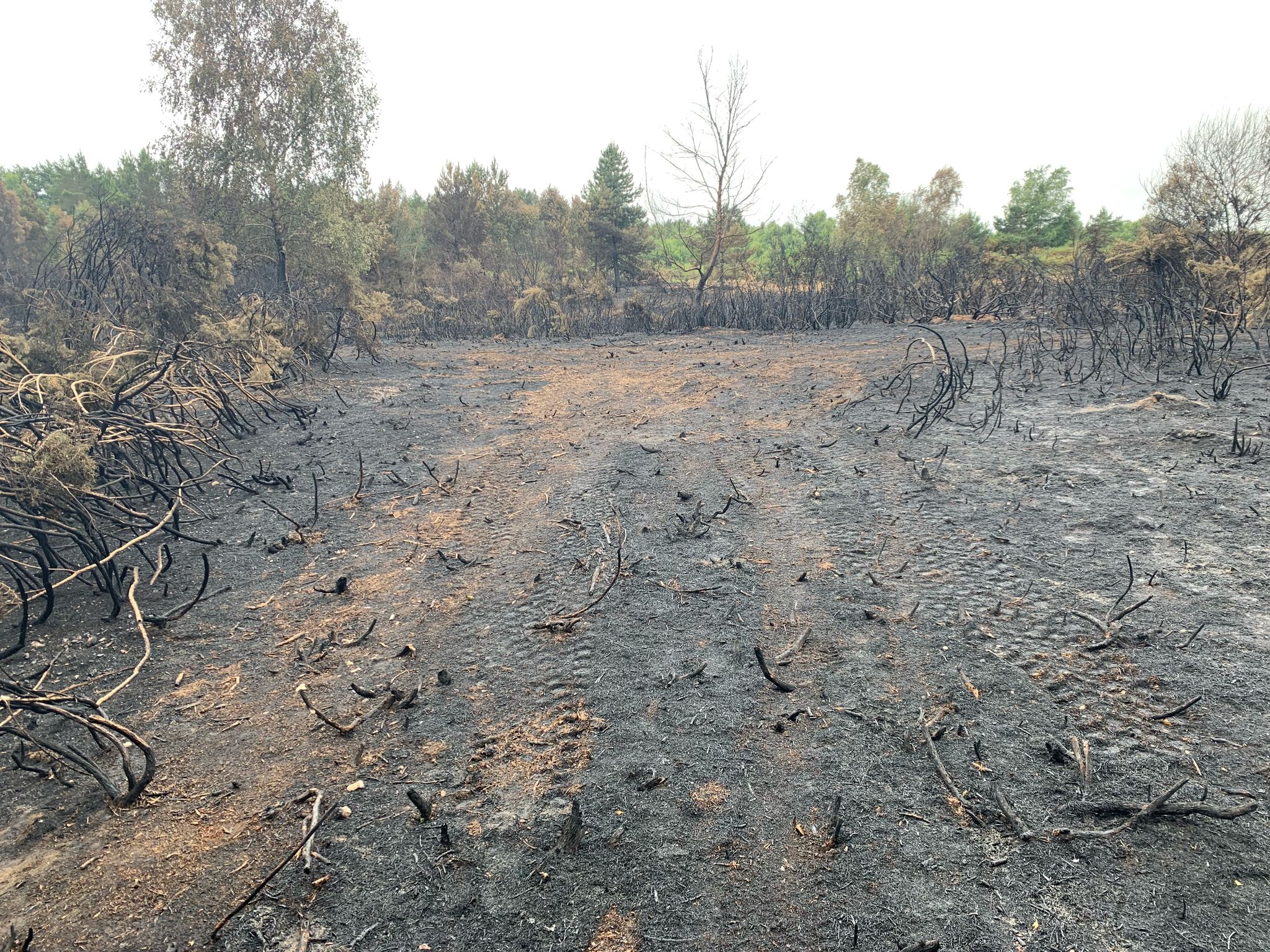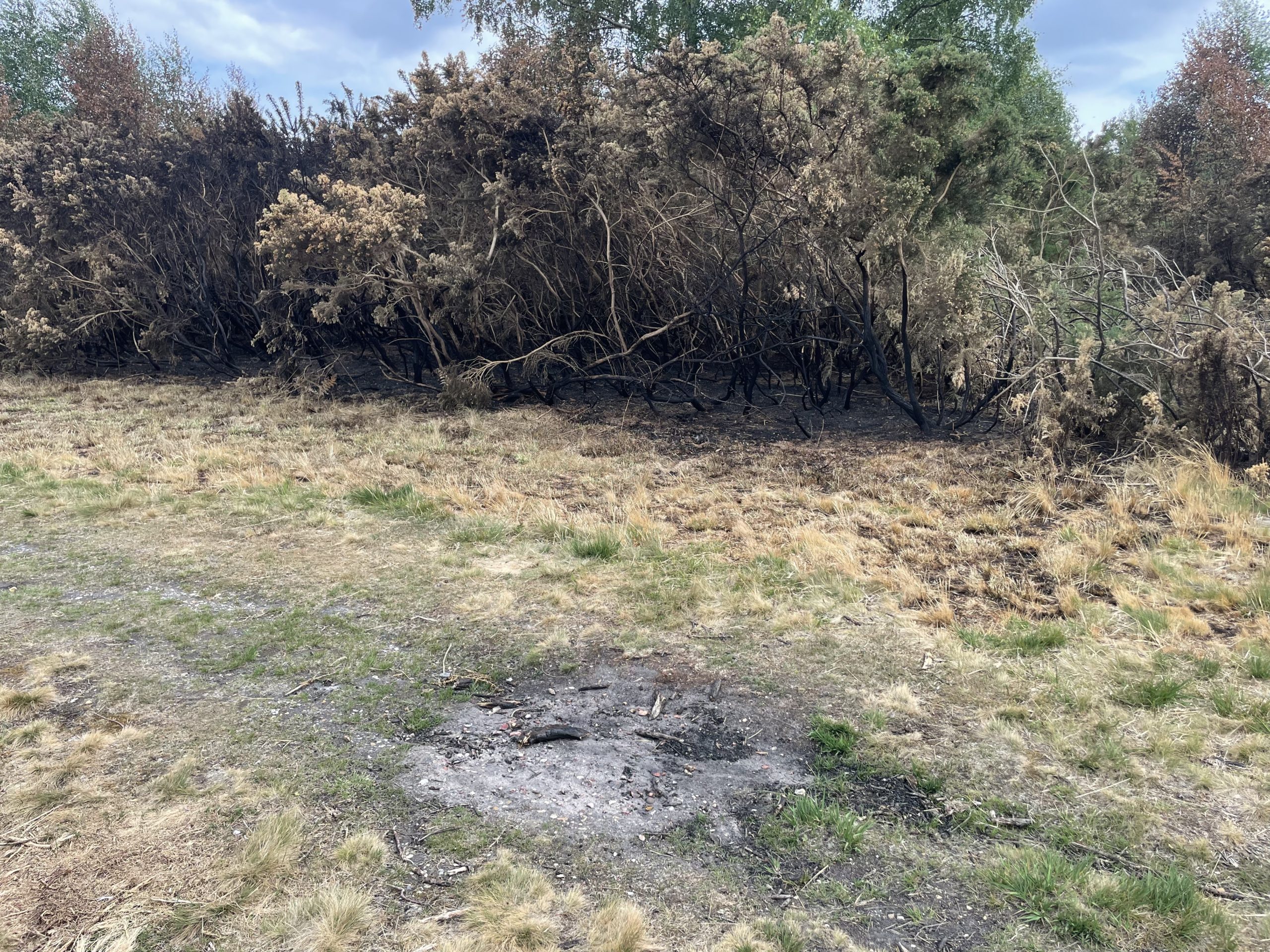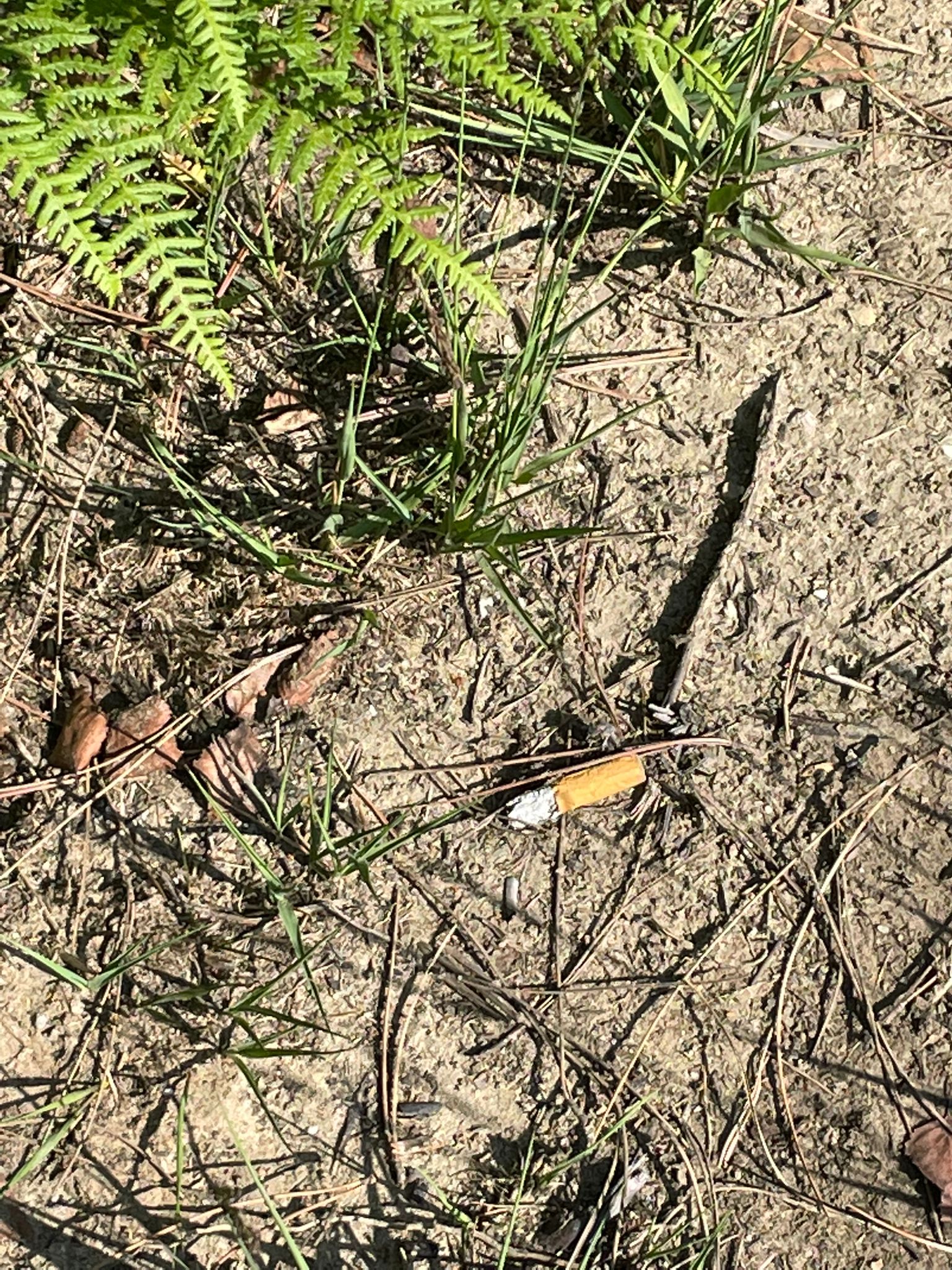Spring wildfire update
If you have read the news, local and national, you will be aware of the large number of wildfires in recent weeks. After an extremely dry March (in the South East we had only 13% of our usual rainfall), our most vulnerable countryside habitats like grassland and heathlands have been left tinder dry. Locally we have had fires on Sheets Heath, Lightwater Country Park, Ash Ranges, Turf Hill, Eversley Common, Bramshill Plantation and Yateley Common.
This is an appeal to help prevent fires in order to keep people and property safe, and to protect our local heathlands and resident wildlife.
Lowland heathland once covered large swathes of southern England, but over the last 200 years we have lost over 75% of it. Not only is it a rare and threatened habitat, it is home to a unique set of wildlife that rely on it to survive. Wildfires can completely destroy large areas of heathland, injuring or killing wildlife and ruining the environment for visitors.

Deceased grass snake at Eversley Common. Credit: Forestry England
It is important to recognise that wildfires have always occurred but climate change means that in the UK, and around the world, extreme weather events including longer lasting heatwaves have resulted in an increased intensity, scale and frequency of wildfires. In 2022, the extreme weather conditions resulted in wildfires that damaged large areas of habitat and peoples homes; and stretched fire services to their limit.

Eversley Common post-fire. Credit: Mike Taylor
The largest wildfire on the Special Protection Area, the Swinley Forest fire in 2011, cost the fire and rescue service more than £500, 000, with studies putting the overall costs at over £1 million. It took 300 firefighters from services across the country working relentlessly to extinguish the fire in arduous conditions. Residents were evacuated from their homes and local business including pubs and leisure facilities were closed for several days costing them thousands of pounds.
We all have a responsibility to protect our countryside for current and future generations and whilst most wildfires (the definition being an unplanned, uncontrolled fire in an area of combustible vegetation) aren’t caused intentionally, human carelessness is a major factor. This is where we are asking for your help:
- Avoid having open fires or using BBQs in the countryside. Even if you take care to put out campfires residual heat and embers can cause hidden smouldering fires underground that will then spread to surface vegetation. Some parks and open spaces provide permanent BBQ sites – look on your local council website to find out if there is somewhere local to you. Or even better pack a picnic!

Camp fire site at Yateley Common. Credit: Kay Fletcher
- Extinguish cigarettes properly and don’t throw cigarette ends onto the ground or out of car windows. A poorly extinguished cigarette can easily cause a grass or heathland fire.
- Take rubbish home or dispose of it properly in a bin. A glass bottle on a sunny day can cause a fire by magnifying the sun’s rays.
- If you see a fire in the countryside, get to a safe place (in some circumstances wildfire can travel faster than an olympic sprinter) and call the fire service on 999 giving them an accurate location of the fire. Apps like what3words can help firefighters find a fire in the open quickly.

Discarded cigarette butt at Yateley Common. Credit: Nicola Buckland
We can all #BeWildfireAware and help spread the word.
Hannah
Thames Basin Heaths Partnership
